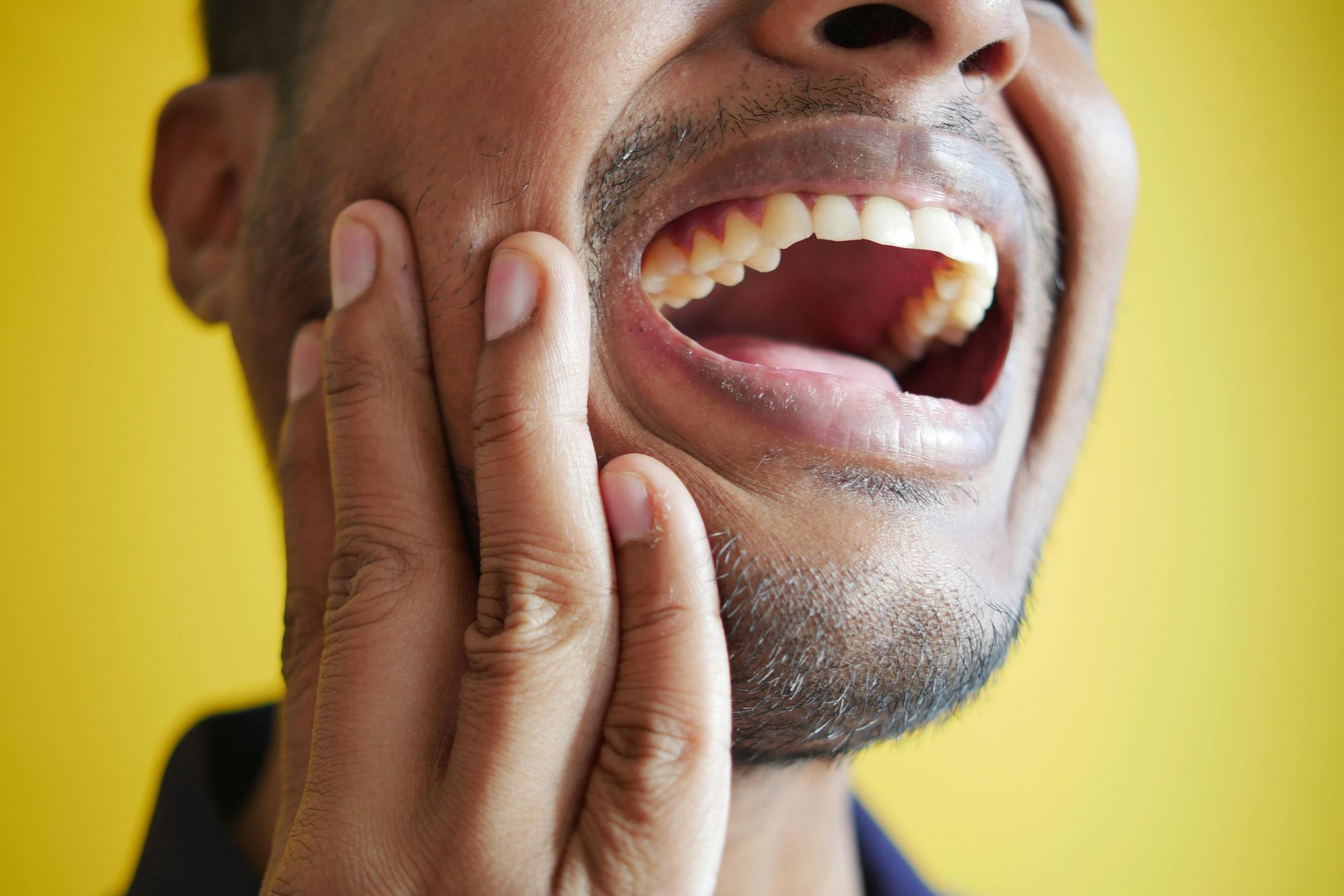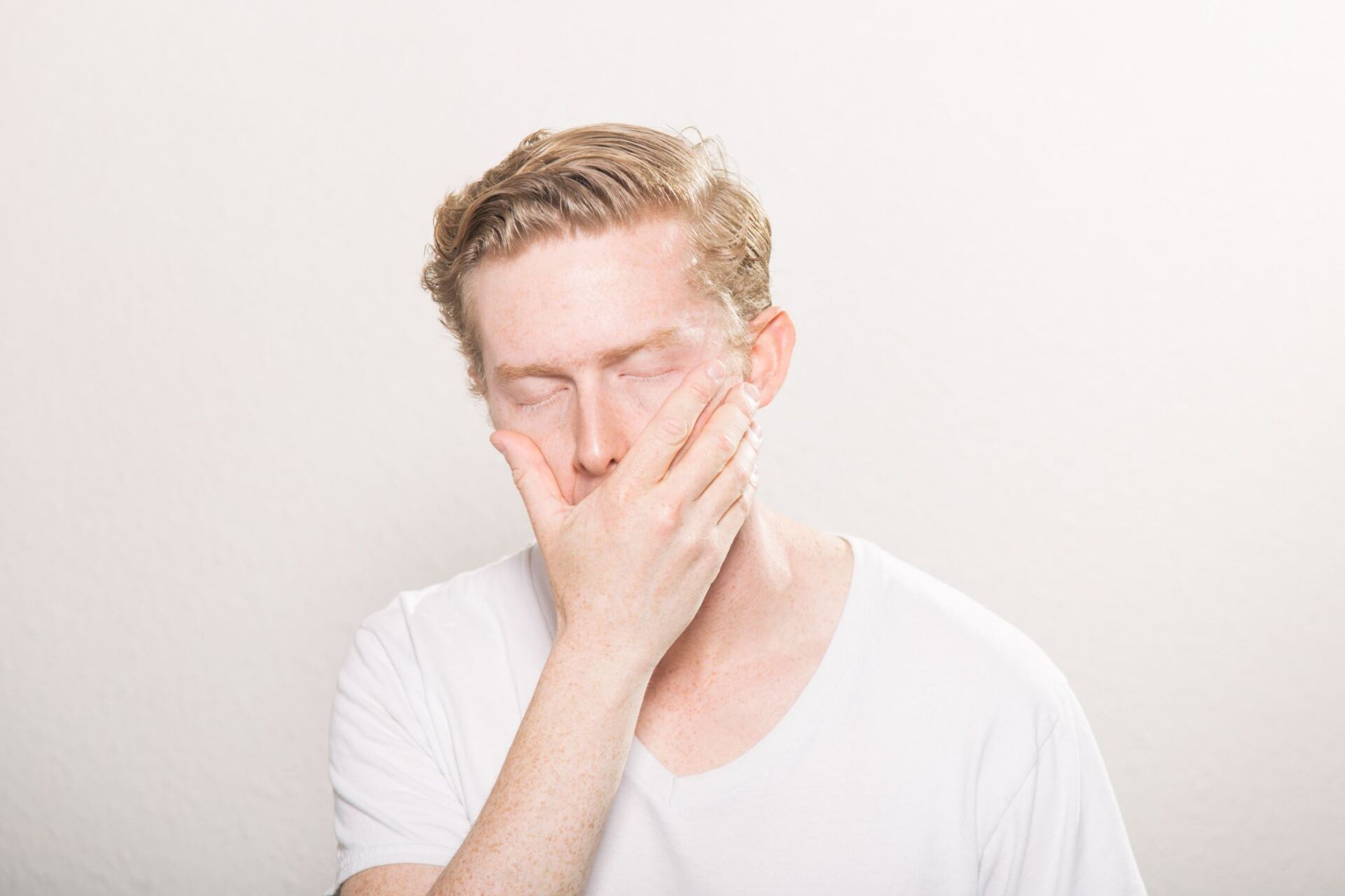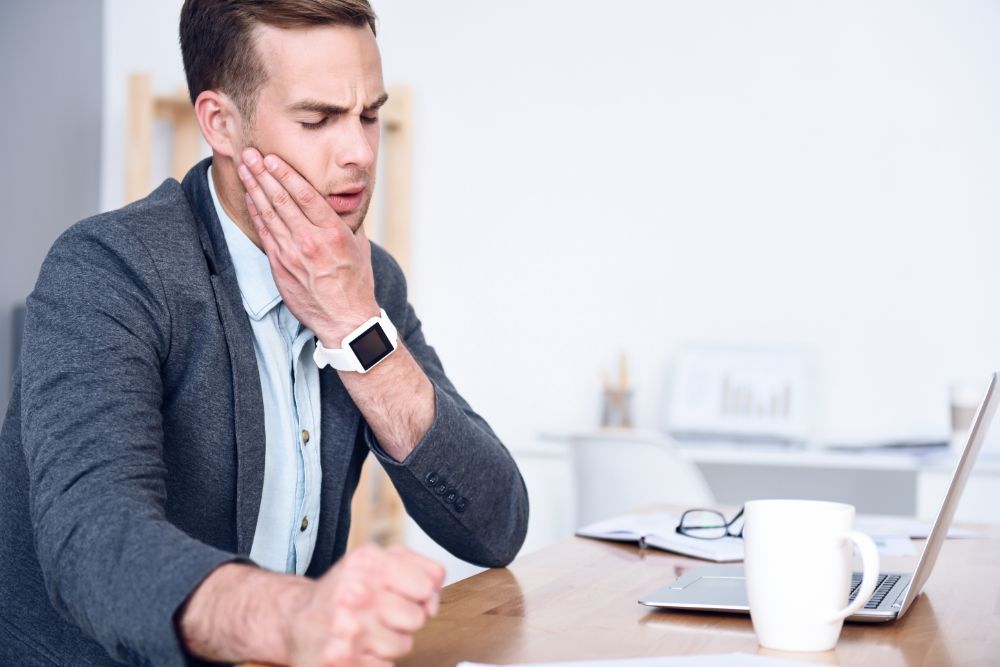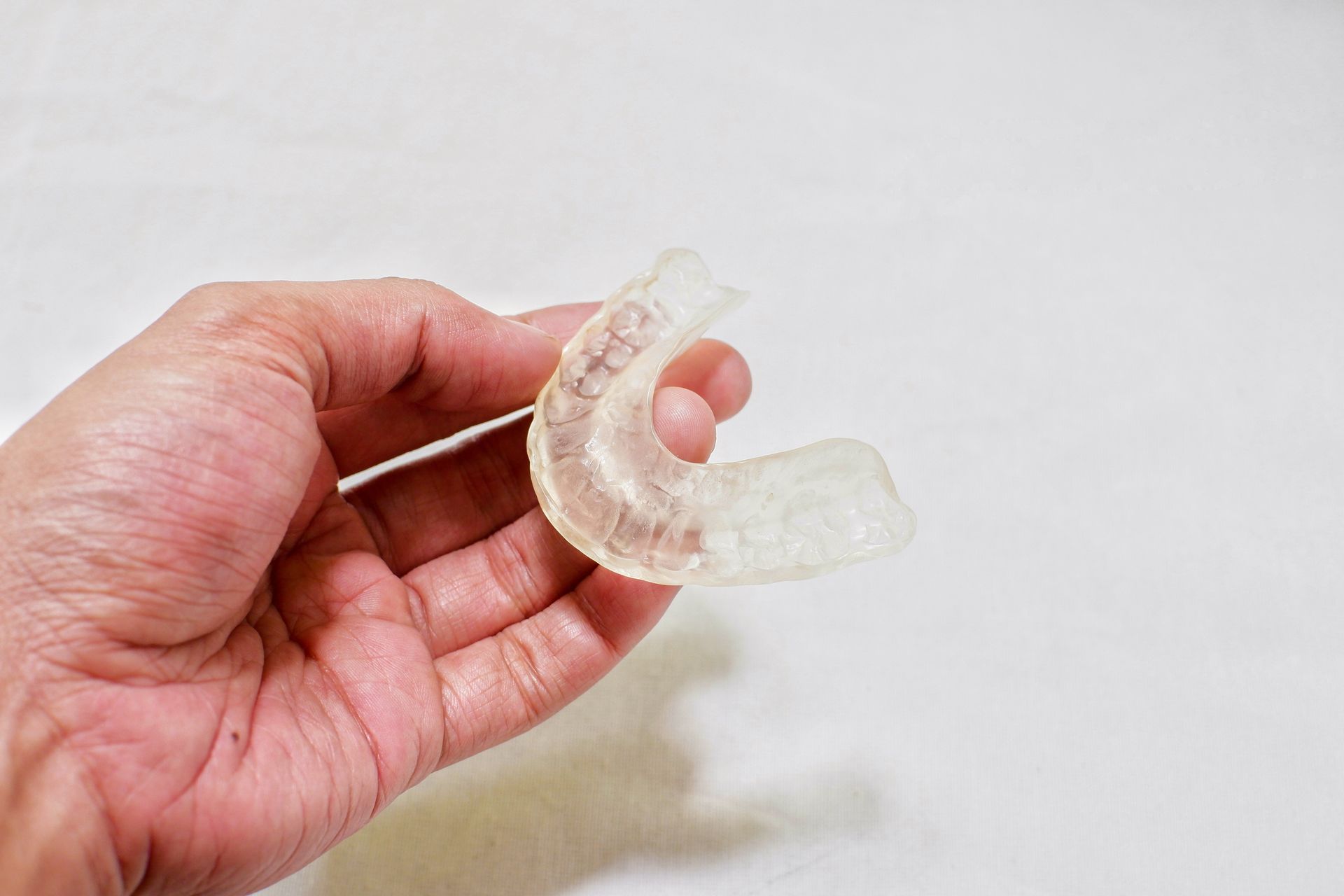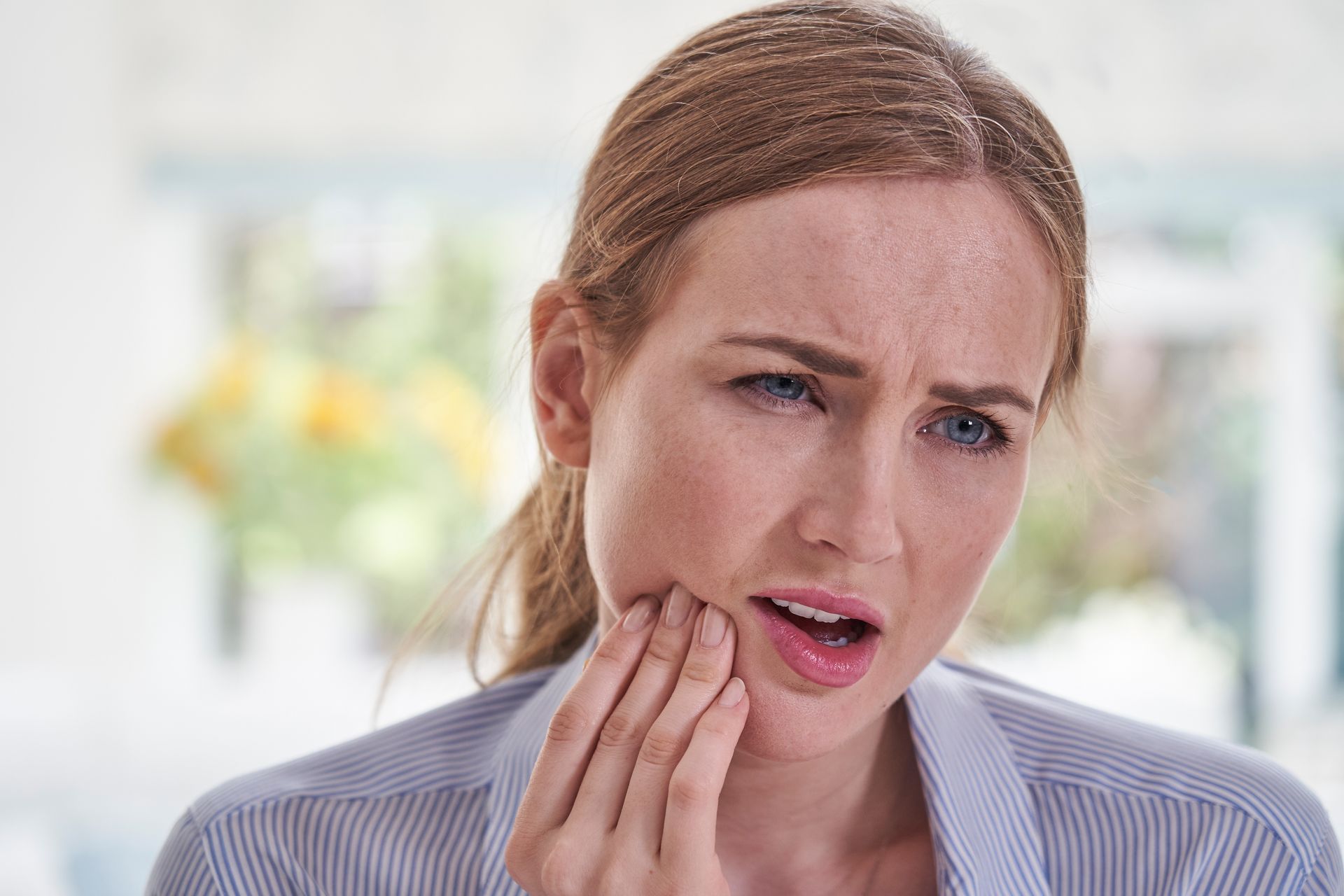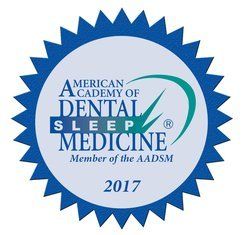Your TMJ & Headaches - How They’re Related & Treatment Options
Headaches are a common medical condition, with about half of adults suffering from at least one headache in any given year. Unfortunately, headaches can be caused by a huge range of environmental and personal factors.
One of the most common questions we get at Restore TMJ & Sleep Therapy is whether temporomandibular joint disorders (TMD) can cause headaches. Unfortunately, headaches are a common symptom of TMJ disorders. However, Dr. Phillips has years of experience treating TMDs and addressing the often painful symptoms.
Can Your TMD Cause Headaches?
Quite simply, yes. When you’re suffering from a TMD, your joint or the muscles attached to it could be damaged or functioning improperly. When this happens, it can cause your muscles to tighten up, which in turn can result in headaches.
The jaw is a powerful and complex part of our maxillofacial region. Our highly movable jaw allows us to eat and talk, which requires not only strength but also precise movements. A number of muscles are connected to the temporomandibular joint (TMJ) to make this possible and a common problem associated with TMDs is tension in the connecting muscles. Once the muscles tense up, it can result in a headache.
TMJ headache symptoms
TMJ headaches are similar to a common tension headache. Unfortunately, typical headache treatments won’t provide relief if the pain is caused by an underlying TMJ disorder. Because of this, it’s important to determine whether your headache could be caused by a TMD.
The first step you should take is to look for common TMD symptoms, including:
- Pain in the jaw
- Tightened muscles across the face
- A popping or clicking sound when you move the jaw
- Pain behind the eyes or around the ear
- Grinding or clenching of the teeth
Bruxism, or teeth grinding, can also be an issue. Often, bruxism and clenching is accompanied by tightened muscles as well.
TMD or Tension Headache?
Watching out for TMD symptoms is a great way to determine if you are suffering from a TMJ disorder in addition to your tension headache.
You can also look for common symptoms for migraines and other headaches, including:
- Sensitivity to light
- Nausea
- Fatigue
- Feeling dizzy or disoriented
How To Get Relief From Your TMJ Related Headaches
If a TMJ disorder is causing your headaches, over the counter headache remedies will likely will not be enough. You must address the underlying condition.
Some medications may help, such prescription pain medication or anti-inflammatories. If muscle tension is the cause of your headache, muscle relaxers can help provide some relief.
A warm compress may also help loosen up tightened muscles, potentially providing pain relief. However, unless you treat the underlying TMD, the pain relief will likely only be temporary.
As a result, the most effective, research-based method to deal with TMD related headache issues is long term splint therapy combined with the short term effects of medication relief. Splints, Oral Appliances and Mouthpieces may not provide the instant relief of medication but they have been shown to help reduce the occurrence of headaches over the long-term.
Physical therapy can also be particularly effective at reducing muscle tension, which could provide more immediate relief for your headache. Over time, effective physical therapy combined with splint therapy may also help resolve your TMD.
Surgery is a more extreme measure but if other methods are not working, it may be necessary.
In addition, certain lifestyle changes may improve your TMJ disorder. For example, smokers are more likely to suffer from a TMD. Likewise, eating hard foods may cause or worsen your disorder. Anything that is exacerbating your TMD could be making your headaches worse or more frequent.
When it comes to treating TMDs, it’s important to first identify the underlying cause. Then, you can formulate the proper treatment plan. If you have questions, you should reach out to a TMJ disorder specialist.
Answering Your TMJ / Headache Related Questions
- Can TMJ disorder cause headaches?
Headaches are a common TMJ disorder symptom. As swelling and inflammation in the TMJ spreads to facial muscles and ligaments, headaches can manifest around the skull and face. Tension headaches may also occur in TMJ disorders due to asymmetry in jaw alignment. Severe TMJ can cause migraines.
- What does a TMJ headache feel like?
A typical TMJ headache is a tight, dull ache. Normally, it is more pronounced on the side where the TMJ disorder is worse. TMJ headaches often occur with other symptoms, including, but not limited to, tight facial and/or jaw muscles.
- How long can TMJ headaches last?
TMJ-related headaches vary in length and may last a day or more. They usually disappear once the jaw is rested and associated muscle tension and inflammation subsides.
- Can TMJ headaches happen every day?
TMJ headaches can occur daily during a flare up or with untreated or undertreated TMJ disorder. Finding effective treatments for TMJ disorder and flare ups help avoid TMJ headaches and can reduce frequency and duration.
- Is it possible to cure my TMJ headaches for good?
TMJ disorder isn’t curable, but it is treatable. So, the same applies to TMJ headaches. With effective TMJ disorder treatment, it is possible to keep TMJ headaches from occurring.
TMDs Often Require Expert Treatment
TMDs are complex medical conditions that can be caused by a wide variety of factors. Unfortunately, this makes treatment difficult. However, experts like Dr. Phillips have years of experience treating TMJ disorders. Dr. Phillips can help treat your tmj related headaches.
Treatment will mitigate not just the headaches but the underlying condition. Get in touch today if you believe you’re suffering from a temporomandibular joint disorder.
Contact Us Today For A Consultation!
Contact Us
Thank you for reaching out to us at REstore TMJ and Sleep Therapy. We look forward to helping you. We will follow up within 24 hours for contact requests received during normal office hours Monday – Thursday. If you have submitted a request later in the day on Thursday – Sunday, we will follow up on Monday. If you would like to talk to us before we can get to your request, please feel free to give us a call at 281-296-6797 Monday – Thursday 8am – 4:30pm. Have a great day!
Regards,
Dr. Katherine Phillips and Staff
Please try again later.
REstore TMJ & Sleep Therapy P.A.
1001 Medical Plaza Drive,
Suite 200 | The Woodlands, TX 77380
281-296-6797
Dr. Phillips serves TMJ & Sleep patients in: The Woodlands TX | Spring TX | Conroe TX Tomball TX | Cypress, TX | Houston, TX | Kingwood TX | Humble, TX | Katy TX
© 2023 by REstore TMJ & Sleep Therapy | Terms Of Service & Privacy Policy | XML Sitemap
-2700x842-1920w.png)







